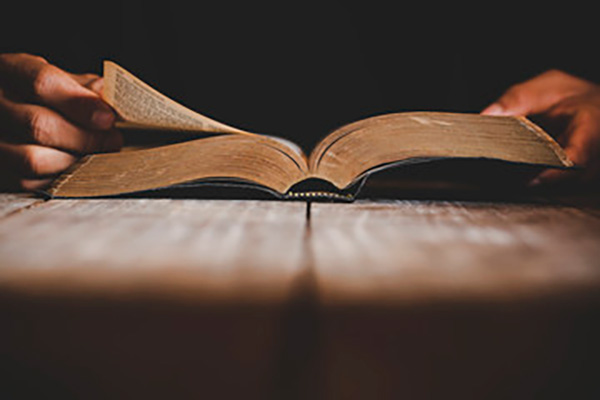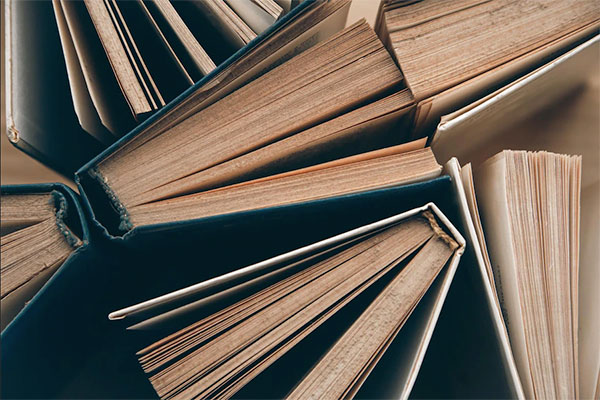
The Mexican professor explained the work of UNESCO's Memory of the World Program, which provides international, regional and national recognition to each historical record in order to preserve documentary heritage.
Within the framework of the “Regional Symposium on Conservation and Management of Documentary Heritage (Archival and Bibliographic): Good Practices and Current Possibilities”, Dr. Gerardo Zavala Sánchez, coordinator of the degree in Library Science and Information Studies at the National Autonomous University of Mexico, presented the presentation “Unesco Memory of the World Program: an experience from the Mexican vision.”
He explained that the memory of the world refers to the collective and documented memory of people. This heritage represents a part of the cultural heritage of humanity and is the legacy that ancestors have left to present and future communities.
Currently, said Dr. Zavala, documentary heritage is important because documentation gives identity to society and is an example of the existence and sociocultural development of people. For this reason, he noted, many institutions have been raising awareness about these documents that are being destroyed and that must be preserved for posterity.
In that sense, he said that the UNESCO program aims to give importance and recognition at the international, regional and national level to each heritage record or document that is registered.
To do this, it disseminates the registered heritage through events, awareness campaigns and alerting public powers, communities, citizens, business and commercial sectors about the need to preserve this historical documentation, he said.
Likewise, he maintained that, in the program, the concept of documentary heritage not only includes printed manuscripts and monographs, which are found in libraries and archives, but also all documents that are in audiovisual, digital, etc. media.
For example, in Mexico there is a Mexican Memory of the World Committee with which 14 records have been achieved at the international level, 28 at the regional level and 74 at the national level, Zavala commented.
Final learnings
As final reflections, Master Cristina Vargas, director of International Relations, indicated that these two days of activities of the regional symposium have left important learnings such as new reflections on heritage, the idea of unarchiveing while being respectful of the methodologies and archival work of the library to make documentation accessible and more inclusive, and the important task of disseminating these documentary archives in order to generate interest and commitment from the communities.
At the closing of the symposium, Dr. Enrique Banús, dean of the Faculty of Humanities, said that with this type of events we are contributing to making palpable how heritage is part of daily life and requires specialized professional dedication, because being Human is a patrimonial being that guards, transmits or deteriorates the patrimony; Therefore, education and heritage awareness are necessary.
“Heritage is not a specific issue for professionals but for all families and communities that have heritage assets, which are important because they tell a story and establish links with the past, with other people and with the next generations,” he said.
November 3, 2022
See original note: Here

The exhibition, which includes titles from the 16th century to the 19th century, is exhibited within the framework of the Codicis project, which seeks to promote the recovery and conservation of documentary and bibliographic heritage in Latin America.
Within the framework of the regional symposium “Conservation and Management of Documentary Heritage, good practices and current possibilities”, carried out under the Codicis project, with the support of the Erasmus+ program of the European Commission, the Library of the University of Piura inaugurated the exhibition “Legado documentary at the UDEP of the historical heritage fund from the 16th to the 19th century.”
The exhibition will be open until the end of November, in the Central Library of Campus Piura. The themes of this historical collection are varied and include works of law, theology, history and literature. Currently, this collection consists of almost 2,500 titles; Of them, a sample has been taken in order to promote an approach of the community towards the ancient book.
The Codicis project seeks to train people related to the conservation and management of heritage archives and libraries to enhance the value of the documents that make up their collection.
María José Andrade, director of the UDEP Library System, when opening the exhibition, reported that these two years of participation in the project have given them the great opportunity to value the collection of historical documents, which are invaluable for the society.
“We direct our effort and commitment on a daily basis to enable greater access to information so that it can serve as a starting point and inspiration for new research,” he said.
He indicated that the Library's vision is to provide a professional support and study service for teaching and research. To this end, taking into account the academic and scientific information needs of users, an important place is given to the resources, processes and services offered for research, he commented.
He explained that in the Library books, magazines and documents are acquired, catalogued, organized, preserved and made available in any type of format, whether physical or digital. In addition, support services are provided and developed for the user to access this information.
Some figures
The Library has a bibliographic collection of approximately 300,000 exemplary volumes and a newspaper collection of almost 3,000 titles of academic or scientific journals in printed format, three own databases and multiple online and subscription resources, which offer information in text. complete, images, audios of specialized magazines in various disciplines, online bibliographic managers, as well as subscription to local, national and foreign newspapers. It also has an important collection of plans and maps.
Among the collections it houses you can find pre-Hispanic goods from the Piura region, ceramics, geographical collections, popular art and intellectual collections such as that of José Antonio del Busto.

November 2, 2022
See original note: Here

The exhibition, which includes titles from the 16th century to the 19th century, is exhibited within the framework of the Codicis project, which seeks to promote the recovery and conservation of documentary and bibliographic heritage in Latin America.
Within the framework of the regional symposium “Conservation and Management of Documentary Heritage, good practices and current possibilities”, carried out under the Codicis project, with the support of the Erasmus+ program of the European Commission, the Library of the University of Piura inaugurated the exhibition “Legado documentary at the UDEP of the historical heritage fund from the 16th to the 19th century.”
The exhibition will be open until the end of November, in the Central Library of Campus Piura. The themes of this historical collection are varied and include works of law, theology, history and literature. Currently, this collection consists of almost 2,500 titles; Of them, a sample has been taken in order to promote an approach of the community towards the ancient book.
The Codicis project seeks to train people related to the conservation and management of heritage archives and libraries to enhance the value of the documents that make up their collection.
María José Andrade, director of the UDEP Library System, when opening the exhibition, reported that these two years of participation in the project have given them the great opportunity to value the collection of historical documents, which are invaluable for the society.
“We direct our effort and commitment on a daily basis to enable greater access to information so that it can serve as a starting point and inspiration for new research,” he said.
He indicated that the Library's vision is to provide a professional support and study service for teaching and research. To this end, taking into account the academic and scientific information needs of users, an important place is given to the resources, processes and services offered for research, he commented.
He explained that in the Library books, magazines and documents are acquired, catalogued, organized, preserved and made available in any type of format, whether physical or digital. In addition, support services are provided and developed for the user to access this information.
Some figures
The Library has a bibliographic collection of approximately 300,000 exemplary volumes and a newspaper collection of almost 3,000 titles of academic or scientific journals in printed format, three own databases and multiple online and subscription resources, which offer information in text. complete, images, audios of specialized magazines in various disciplines, online bibliographic managers, as well as subscription to local, national and foreign newspapers. It also has an important collection of plans and maps.
Among the collections it houses you can find pre-Hispanic goods from the Piura region, ceramics, geographical collections, popular art and intellectual collections such as that of José Antonio del Busto.

November 2, 2022
See original note: Here

Professor Carina Rey has participated in the symposium «CODICIS: heritage libraries and the objectives of sustainable development» which took place on October 26-27, 2022 with the virtual conference «Coming into practice with the 2030 Agenda ? “Proposals for management in libraries” to the José María Lafragua Historical Library (Benemérita Autonomous University of Puebla).
This event is part of the regional seminars that are held in Peru, Bolivia and Mexico within the framework of the Erasmus+ CODICIS project in the month of October.
October 28, 2022
See original note: Here

Professor Carina Rey has participated in the symposium «CODICIS: heritage libraries and the objectives of sustainable development» which took place on October 26-27, 2022 with the virtual conference «Coming into practice with the 2030 Agenda ? “Proposals for management in libraries” to the José María Lafragua Historical Library (Benemérita Autonomous University of Puebla).
This event is part of the regional seminars that are held in Peru, Bolivia and Mexico within the framework of the Erasmus+ CODICIS project in the month of October.
October 28, 2022
See original note: Here


